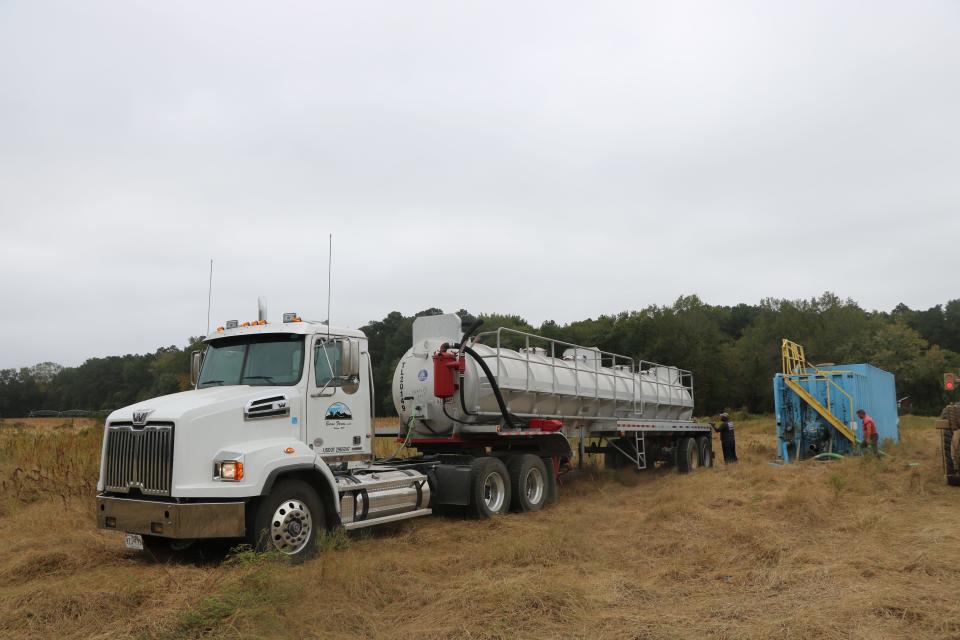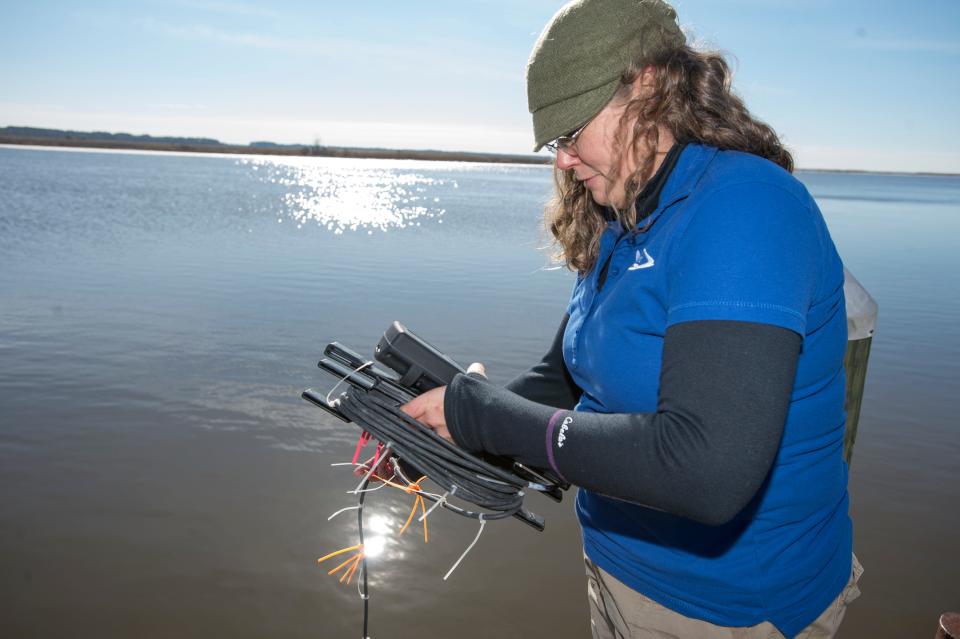Clean water legal rights, rules for industrial sludge in new Maryalnd laws: What to know
- Oops!Something went wrong.Please try again later.
Maryland Gov. Wes Moore bolstered Maryland's environmental priorities in a bevy of legislation signed into law which covered clean water and agriculture.
In July 2023, Moore signed two executive orders, one establishing the Governor’s Council on the Chesapeake and Coastal Bays Watershed and the second establishing an Oyster Shell and Substrate Task Force. Citing recent research, he pledged to follow the science and apply full state efforts in restoration efforts. Moore also pledged that Maryland would be the first state in the region to adopt water quality recommendations.
Topics of the new legislation signed by Moore were priorities backed by the Chesapeake Bay Foundation, Citizens’ Campaign for the Environment and other partners.
“The Maryland General Assembly and Moore Administration have taken notable action towards improving Maryland’s water quality. By adopting these bills and signing them into law, state leaders are putting the best available science into action to get Maryland closer to its pollution reduction goals," said Allison Colden, the Chesapeake Bay Foundation's executive director for Maryland.
More on Black history and the region Explore beaches and more with historic Black significance around Maryland's Eastern Shore
More on wetlands and sea level rise Vital wetlands see expansion across Chesapeake Bay region amid sea level rise concerns
New law contains updated rules for industrial sludge

The Food Processing Residuals Utilization Permit bill, or SB 1074 and HB 991, establishes a food processing residuals utilization permit and prohibits a person from utilizing food processing residuals in the state unless the person obtains a permit.
It also requires the Department of Agriculture to provide a certain notice and information to those in the county to make it public where food processing residuals will be stored.
"By establishing the Food Processing Residuals Administration Fund, it authorizes a representative of the department to enter and inspect any site where food processing residuals are utilized," stated the legislative summary.
The Chesapeake Bay Foundation, ShoreRivers and the Chesapeake Legal Alliance contend the bill will create stronger regulations in Maryland for the storage and land application of industrial sludge, particularly dissolved air flotation material, through a new permitting program. DAF residuals are leftovers from the protein rendering process that are often applied to farmland as an agricultural fertilizer.
Sludge tanks, also known as Dissolved Air Flotation tanks, are used in agriculture to store animal parts and waste that is later extracted to be used as a cheaper soil amendment to help crops when compared to traditional fertilizer prices.
More on Wicomico County and sludge How will Wicomico County balance farmers vs. neighbors on sludge tank debate?
Clean water in the courts
The Clean Water Justice Act, or SB 653 and HB 1101, protects communities’ rights to sue when the rules are broken, retaining the power of the people most directly threatened by pollution. It also allows communities harmed by illegal water pollution to enforce state law concerning contaminated water and its sources.
On the federal level, the U.S. Supreme Court recently removed more than half of the nation’s streams and wetlands from federal Clean Water Act protection. Maryland represents the handful of states that has codified additional state legislation to address poor water quality and other contamination like "forever chemicals."
Earlier this month, three Maryland environmental groups announced plans to file a lawsuit against the Environmental Protection Agency for failure to abide by conditions in the Clean Water Act.
According to the groups, "the landmark 1972 law requires the EPA to report on the condition of America’s streams, rivers, lakes and estuaries at least once every two years. But EPA’s last national water quality report was released seven years ago, in 2017," the notice stated.
Locally, the city of Salisbury has responded to concerns about PFAS contamination in its water supply, saying it currently meets all quality regulations required by state and federal agencies.
More on PFAS and Salisbury Drinking water in Salisbury: How safe is it after callout from EPA?
According to city officials, water standards from the Maryland Department of Environment and U.S. Environmental Protection Agency were "met despite a newly released EPA report that led to increased attention to the existence of Per and Polyfluoroalkyl Substances, or PFAS, in drinking water nationwide.“
What's new in watershed protection?

The Whole Watershed Act, or Senate Bill 969 and House Bill 1165, will use existing state funds to create a five-year pilot program targeting five Maryland watersheds that best represent the state’s diverse land uses, geographies and impairments.
According to the legislative overview, the pilot projects will deliver not only water quality improvements, but also specific co-benefits like increased public access to waterways, wildlife habitat, fisheries improvement and climate change resiliency.
The legislation, introduced by Sen. Sarah Elfreth, D-Anne Arundel and Del. Sara Love, D-Montgomery, promotes "innovative, science-based approaches to waterway restoration efforts" and is a direct response to conclusions in the 2023 Comprehensive Evaluation of System Response Report — an evaluation of water quality progress for the Chesapeake Bay.
Target watersheds will be selected by and in close collaboration with local stakeholders and elected officials who will be critical in the design and implementation of restoration projects.
This article originally appeared on Salisbury Daily Times: Maryland laws take on industrial sludge, clean water legal rights

